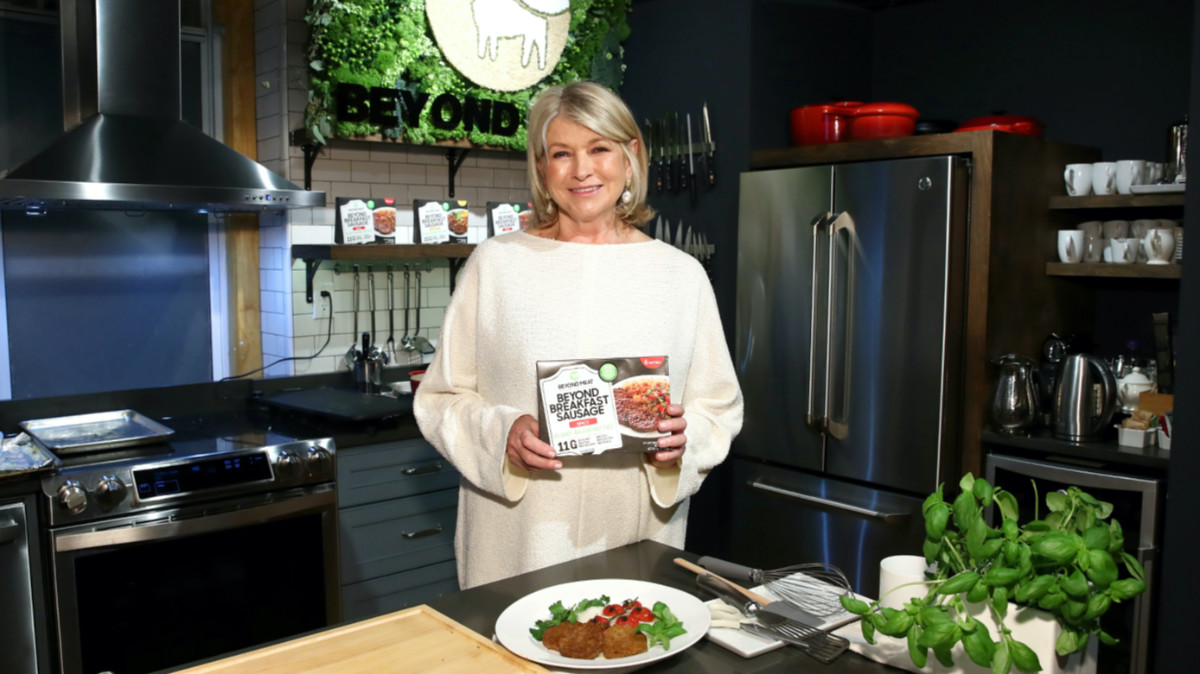The ‘fake meat’ sector got a COVID-19 boost. Here’s how it could quickly grow into a $6bn industry in Australia

There's more to plant based food than just 'fake meat' - if the sector of ASX stocks is anything to go by. Picture: Getty Images
2019 seems like an eternity ago but one trend that marked the last pre-COVID year was the rise of the “fake meat” industry.
Had you invested in Beyond’s IPO at US$25 a share, you’d be sitting on a healthy gain with the share price over $120 a pop.
Since 2019, the so-called “fake meat” industry hasn’t been as prominent but progress has still been made in plant-based foods more generally.
While there are only a few ASX stocks in plant-based foods, there’s no shortage of private companies in the space. We spoke to v2food CEO Nick Hazell about what the future holds.
Plant-based foods in Australia $6 billion by 2030
v2food was launched in 2018 out of the CSIRO’s Innovation Fund. It has some “fake meat” products but also a unique process which makes its products easier to produce.
Speaking with Stockhead, Hazell says Australia is at a early stage compared to other countries but is gradually growing.
“Alternative proteins are at an early stage in Australia at the moment but we’ve been impressed by the response of the Australian industry to try the next generation of plant-based products,” he said.
“We’re continuing to grow month on month and are attracting an increasing consumer base across major and independent supermarkets.”
V2 is looking to be a major exporter and Hazell says his firm is ideally positioned for that.
“v2food products do not contain GMOs or any artificial colours or flavourings – this makes it an ideal product for the European and Chinese markets, where the many large competitors have been unable to enter the market due to strict regulations,” he said.
Hazell says US$3.1 billion was invested in “alternative proteins” in 2020, which was a record for the industry and in Australia’s economy alone, $6 billion could be added by 2030.
“This isn’t about taking a share of the existing meat market, this is an additional opportunity to create a new market that could add $6 billion to our economy by 2030,” he said.
Why people are turning to plant-based foods
Hazell claims COVID-19 has been a catalyst for plant-based foods to take off.
He primarily noted the self-reflection it has caused everyone to take on their lives. But he also says the supply struggles endured by some meat companies thanks to COVID-19 lockdowns and even outbreaks in some factories also had an impact.
“The COVID-19 pandemic is a wake-up call to the vulnerability of our food supply systems. Empty supermarket shelves made us think about the impact that other existential crises, including climate change, could have on our ability to eat the food we want,” Hazell said.
“Coronavirus outbreaks resulting in meat shortages nationwide put a spotlight on our meat supply system.
“Consequently, some consumers began to think about how they can eat better, not only for their own health, but for the health of the planet. And as a result, this year we saw more plant-based protein alternatives appear on supermarket shelves nationwide.”
The ‘fake meat’ ASX stocks
Look at the list of ASX stocks in the plant-based foods space, few are explicitly making “fake meat”.
The closest to a “fake meat” ASX stock is poultry company Inghams (ASX:ING) which is delving into nuggets among other plant-based proteins.
Another is Maggie Beer Holdings (ASX:MBH) which sells a variety of plant-based food products including creamy coconut curry, eggplant and cannellini bean caponata, and “Boston Style” smokey beans.
Of course just because there’s few ASX stocks in it, there’s no shortage of “fake meat” in Australia – the majority is imported into Australia.
UNLOCK INSIGHTS
Discover the untold stories of emerging ASX stocks.
Daily news and expert analysis, it's free to subscribe.
By proceeding, you confirm you understand that we handle personal information in accordance with our Privacy Policy.








